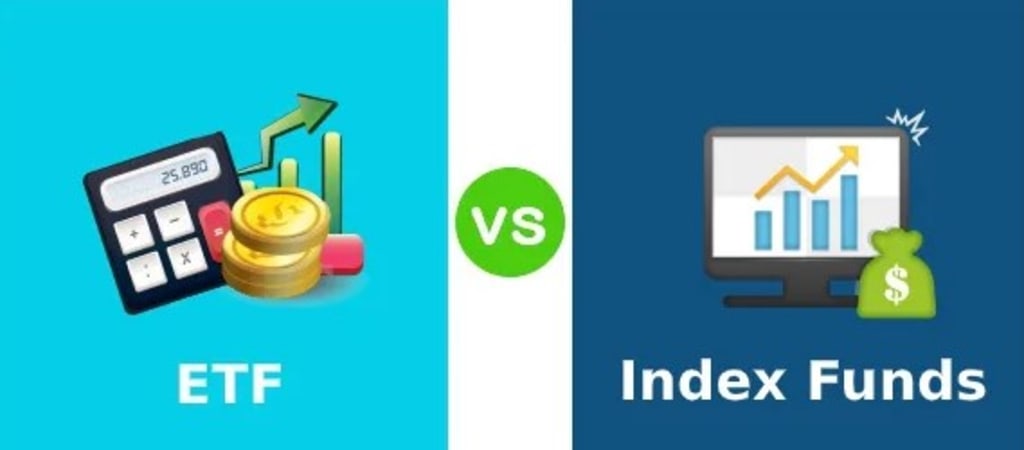Objective View of Stocks Mutual Funds and Index Funds
Comparison of Stocks Mutual Funds and Index Funds

Once you have figured out the appropriate asset allocation for someone who is in their mid-twenties, How do you invest to get the right proportions? Do you invest in one small-cap stock, or one international one and put some money into bonds, and then add cash until the ratios are adequate? The answer is "No". What are your options?
There are several choices; (1) bonds and stocks, (2) mutual funds, or (3) index funds.
Option 1. Why do I require the sixty stock?
If you decide to invest in stocks individually, in order to attain your desired asset allocation, you'll purchase around sixty stocks. Why? Because individual stocks are prone to risks (unsystematic risk) that are in addition to the overall marketplace risk ( systematic risk). Unsystematic risk is the chance of the individual stock could ruin your portfolio gains due to a seemingly insignificant incident, such as a recall of a product an oil price drop, and so on. To limit this risk you should include more stocks, from diverse industries and sectors, in your portfolio. As per Burton Malkiel in A Random Walk down Wall Street that requires about sixty stocks, which makes this strategy unattainable even for those who are average investors, even after taking into account transaction costs.
Option 2. Mutual funds are not as fast...
The challenge of individual stocks is that they are not diversifying, so let's take a look at the most effective source of diversification; mutual funds. There are around 7,707 mutual funds (plenty to pick from) on the market today with a range of 50 to hundreds of bonds and stocks. The funds are sufficiently diverse to remove all risk that is not systemic. But not as fast...how much will it cost to own an investment fund?
Three of their friends, Jason, Matt, and Terry each put up $100,000 when they reach the age of 35. They earn 7% on their investment and won't even touch it until they're old enough (30 years old). The only difference between them is in the amount that each of their friends is charged in fees: Jason has to pay 3 percent, Matt 2%, and Terry 1 percent. What kind of difference do just a few percentage points affect? The results could be awe-inspiring. At the age of 65, each friend has the following characteristics:
Jason - $324,340
Matt - $432,194
Terry - $574,349
It's 77% more for Terry in comparison with Jason, with the sole variable charging.
If you're not convinced that fees are that destructive to your investments , then check out Vanguards' tool that lets you adjust the annual costs and the rate of return for the $10,000 investment you make in theory.
Another factor that deters investors from choosing mutual fund investments is the failure rate. As per Robert Arnott in a twenty-year study of 200 mutual funds that were actively managed just eight of them beat their index, which means that 96% of mutual funds did not perform as well. Investors by Stars in their Eyes is a WSJ article that also reveals the bad track record of mutual funds. The article looked at 248 mutual funds that had five stars for ten years. They found over the course of ten years that just four of them maintained their five-star ranking, and that's only 1.6 percent! Every fund has a one to five Morningstar star rating, with the stars representing the fund's performance in comparison to similar funds. More stars mean more success in the fund.
Does it come as a surprise that people struggle to achieve financial independence when they pay 50-90percent of their earnings to the fund manager's fees or select the fund with only a single-digit chance of beating market trends? It doesn't require an MBA to know that this strategy is not a good one.
Option 3. Index funds are so boring that they work.
Vanguard founder Jack Bogle, when asked about his investment philosophy, He simply said, "Be bored by the process but elated by the outcome." Index funds are as boring as it gets as they track or match the bonds or stocks of a specific benchmark index (S&P 500 Index for instance) with very little turnover (selling). In mutual funds that are actively managed, the administrator is purchasing and selling bonds and stocks to beat the market index, while the index fund is trying to match its specific market index or benchmark. Since there is almost zero turnovers of portfolios in index funds, the fees for index funds are less than the fees for mutual funds. Vanguard is known for having the most affordable charges in the market, 0.19% compared to the industry standard of 1.08 percent.
Do index funds exist for bonds, stocks, Real Estate, and cash components in my Investment Portfolio? Yes, they are. There are a variety of index funds that can be used for every part of the portfolio. You can construct your entire portfolio using index funds and, as I've shown you in the previous paragraphs you should. Find an index fund within your brokerage's online service and you will see tables, graphs, and graphs that provide the specifics of the index. If you're not sure you should call and talk to the customer service department because that's what they're here to help you.
In a Nutshell
Unstructured risk, which can affect your portfolio's returns, is eliminated with diversification.
The fees for mutual funds will eventually ruin your portfolio's returns, They're the key difference between financial stability and financial independence.
Mutual funds have very unlikely to outperform the index over the course of time.
Index Funds are the most lucrative way to maximize your gains and reduce fees, which will help you achieve your financial goals faster.
It's time to check the Investment Options and Plans for your future. Vairt offer the Best Investment options for their Investors. We invite the potential investors to check our Investment Plans and earn Highest ROI. Call us at +15164447715 or Email us at [email protected] and get all the detail you need.
About the Creator
jackaron tyler
Varit Real Estate Investment Group is one of the leading real estate investment groups in the USA. Contact us now through a call on +15164447715 or our website https://vairt.com/contact and get now the best location properties in USA.






Comments
There are no comments for this story
Be the first to respond and start the conversation.